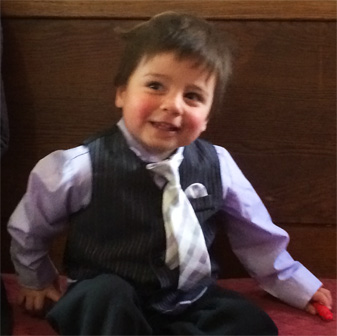I read Christian blogs and Twitter feeds nearly every day, and periodically email myself the standout articles that give me ideas to write about. Time pressures being what they are, a lot of these ideas hang about in my inbox for months, never quite finding the right occasion for a full post. So here is a links roundup, loosely connected around themes of Christian psychology and the balance between self-care and service.
“Maybe We Should Stop ‘Doing Outreach’“: The Rev. Cathie Camaino, an Episcopal priest who blogs as Father Cathie (read her wonderful explanation here), proposes that churches should stop thinking of “service” as organized programs for helping outsiders, and face our fears of sharing our own needs with our fellow members.
“Learning to be vulnerable enough to give and receive is ministry…Engaging with our faith such that it stirs up our compassion, generosity, and courage to be vulnerable is certainly the work of the church. How this happens may not be. It seems that in our congregational life, at least as much energy is put towards the organization and scheduling of ‘outreach’ programs, the recruitment of volunteers, and the promotion of service, than is actually spent doing the work to which we have been called. Maybe the church is not the place to create the programs (which are often duplicated, in much better ways, by other organizations) but the place to ground ourselves in our Christian faith such that we feel the call to serve.”
“Incarnational Boundaries“: Progressive evangelical writer Zach J. Hoag contends that our churches would be emotionally healthier if we took Christ’s embodiment more seriously. We become lost in theories and systems, and don’t pay attention to the ways that abusers exploit our simplistic moralism.
“I see Jesus affirming the embodied human experience of that which is emotionally healthy and unhealthy, safe and unsafe. In fact, I see Jesus practicing healthy boundaries in his work with people that reveals the often manipulative, abusive, and harmful ways that people treat each other (which often causes so much emotional and psychological pain and damage). And this Way of Jesus confronts our ideological, neo-gnostic ways as evangelicals.
See, we are very good at creating unsafe environments where harmful and abusive behaviors are explained away using flat theological categories like sin, pride, faith, prayer, love, reconciliation, forgiveness, leadership, headship, submission, etc. Thus,we don’t respond to these behaviors appropriately nor protect those victimized or potentially affected by them. And, these behaviors are often coming from leaders who are protected as those endorsed by God. Further, we often force the value of ‘community’ onto relationships in the church in such a way that puts people in unsafe or even violating situations.
When we interpret Jesus’s words through his Way, however, we see a different picture. Instead of mandated ‘reconciliation’, we see that there can be no grace, and thus no real reconciliation, without the truth. And, though we always pursue and remain passionate about reconciliation, the reality is that the truth just might bring division, not reconnection. (Forgiveness is another matter, as it requires only one party engaging in a process of releasing bitterness toward the offender.) Matthew 18:15-20 describes a process of truth-telling that may result in the offender not hearing – and thereby being deemed unsafe.
If we mandate things simply by looking at the words of Jesus or the Apostles and drawing out ideological categories, then we may very well continue to produce communities of obligation racked with unhealthy dynamics rather than safe, healthy churches. And if the gospel is bringing us to greater wholeness, showing us what it means to be truly human in the Messiah, then an incarnational church will preach and practice the healthy boundaries that Jesus himself embodied.“
“Kenosis as Pouring Out and Vomiting“: When psychology professor and theologian Richard Beck shared the stage with a trauma expert at a Fuller Theological Seminary lecture series, they explored how the Christian ideal of self-emptying (kenosis) must have a different interpretation for the abused and oppressed, i.e. people whose selves have already been crushed or never allowed to form. Beck proposes:
“…what is being emptied is the hero system–the ways we have internalized social and cultural standards of significance versus insignificance, success versus failure, worthiness versus unworthiness, light versus darkness, pure versus defiled, whole versus damaged. The ’emptying’ of kenosis is becoming indifferent to, dying to, this hero system…
The only difference is where we find ourselves within the hero system. For many the hero system places us on top. At the top, self-esteem and social respect are easy pickings. But the call of Jesus is to become indifferent to all this. That is experienced as a ‘descent’ of sorts.
But for others, the hero system places them at the very bottom. And all too often, this is internalized. You feel that you ‘deserve’ to be at the bottom, deserve the abuse. Because you are insignificant, damaged, unworthy, and full of darkness and pollution.
It’s a toxic situation, this internalized self-loathing, but it’s still the hero system. It’s just the opposite pole, the shadow side. The hero system is still the way the self is being evaluated, even if it is full of self-loathing and self-destruction.
So an emptying has to occur. The hero system–that internalized filth and shit–has to be poured out. Vomited out.
Come to think about it now, this is an emptying that, psychologically speaking, looks very much like an exorcism. Demons–destructive psychological/spiritual darkness–are being cast out, emptied out.
“White Men, Submission, and the Kingdom of God“: And on a related note, Christian author and blogger Dan J. Brennan expands on a comment by Christian feminist writer Julie Clawson about how the language of “dying to self” can reinforce patriarchy:
“Which man or woman, dealing with self-contempt, dealing with chronic self-contempt, wants a steady diet within their church pulpit and church social media, ‘You must die to self, you must submit your voice to others because we’re all guilty of self-exaltation’? I myself, deeply wrestled with chronic self-contempt for years and sermonic appeals to trust God, etc. did not help. For years I did not wrestle with Niebuhrian pride. I wrestled with self-contempt, wrestling with shame wondering how God could love me.
Because of my history, I cringe when I see white male leaders so tightly knit death to self with submission in their ecclesiology and spirituality without a healthy understanding that in the 21st century Niebuhrian pride is not all there is to self-understanding. Niebuhrian pride is not a universal experience for all people. It’s probably not even at the heart of most postmoderns. It’s certainly not at the heart of many women and minorities. White male leaders like this can keep good Christian (and nonChristian) therapists with an unending list of clients wrestling with self-contempt.
They can also promote systemic sin as Julie noted.
It’s challenging and heartbreaking when you see good white men with good hearts come to grips with their genuine Niebuhrian pride and then they want to universalize it for everyone else in their sermons, tweets, and social media.
Read Brennan’s follow-up post here.

